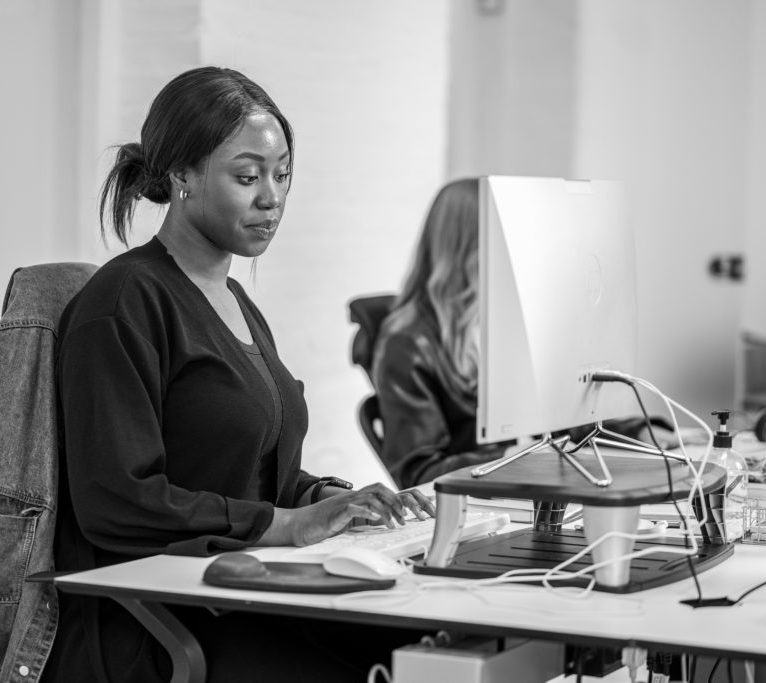
Share article:
Tags:
As you would expect, an individual’s physical, mental and emotional wellbeing have a huge impact on their ability and experience of work. Our wellbeing is therefore an important factor to consider within the discussion of creating and sustaining a ‘great’ workplace culture. But how can individual and collective wellbeing can be improved, protected and supported within the workplace?
As part of our #wrapitup campaign, TCM’s Senior Marketing Executive, Malachi McPherson sat down for a discussion with Dr Ilham Sebah, Health Psychologist and Co-Founder of The Resilience Enhancement Programme.
First of all, the term ‘wellbeing’ can be a bit of a buzzword that could be misunderstood. How would you define wellbeing?
I like to think of wellbeing as having two components – “well” which encompasses the ability to function on a daily basis and regulate ourselves emotionally, physically and mentally, and “being” which looks at how this functioning directly impacts our lives in terms of life satisfaction.
What are your thoughts on resilience in relation to work?
Resilience has increasingly been valued as one of the most important attributes for the workplace. Resilient individuals perform better, deal with stress more effectively, have lower burnout rates, report higher work satisfaction and experience higher morale. This translates into higher productivity for the workplace and a lower staff turnover. Although developing resilience is viewed as an individual’s responsibility, the onus is also on the workplace to ensure that they are cultivating an environment that allows people to thrive as opposed to glorifying a toxic and unrealistic work-life balance for their employees.
Currently, there’s a lot of discussion about austerity/recession within our economy. What effect do you think this will have on workplace wellbeing?
Human beings do not like uncertainty, and austerity and the recession represent uncertainty. Wok-related stress linked to financial insecurity, fear of job loss and redundancies tends to increase during these uncertain times, which in turn can affect staff absence and performance. Suicide rates, depression and anxiety often rise during periods of economic downturn. The cost of living crises has had a negative impact on people’s mental health -59% of people in the UK reported adverse effects on their mental health, with one in five stating that they are unable to cope (Money and Mental Health, 2022). I think it’s important for workplaces to have clear, preventative initiatives in place to manage the wellbeing of staff during these turbulent times. This could include workplace adjustments that offer flexible hours that allow individuals to thrive as well as having appropriate financial wellbeing policies that enable an inclusive culture surrounding financial wellbeing.
Do you have any tips for safeguarding wellbeing at work?
Some tips for improving wellbeing at work include:
• Teaching employees’ practical skills to better manage their mental health and cope effectively. These strategies need to be simple so that employees can implement them easily into their daily lives.
• Encourage a healthy dialogue between managers and employees and upskills leaders/managers to hold effective wellbeing conversations.
• Establish organisations for signposting for further support
• Establish and maintain clear commitment through each team to support mental wellbeing.
• Make wellbeing part of the agenda/vision for the company, as opposed to a tick box exercise.
Are there any resources you would suggest to support people’s wellbeing at work?
The Resilience School is a company that offers practical, evidence-based tools that enable individuals and teams to thrive in the workplace. You can email: [email protected] for more information or a consultation.
There are a number of mindfulness programmes such as Headspace for Work and free resources by mental health charity, MIND.
About Dr Ilham Sebah
 Dr Ilham Sebah is a psychologist who specialises in the field of resilience. She is the Founder of The Resilience School, a consultancy agency that delivers training, workshops and talks on resilience, health and wellbeing. She holds a PhD in Psychology and an MSc in Clinical Neuroscience from King’s College London. Her doctoral research included developing a resilience intervention for students in Higher Education (The Resilience Enhancement Programme ©) and her postdoctoral fellowship extended this research into the medical field, where she worked alongside junior doctors, consultants and GPs. Her breadth of experience and expertise in resilience has led to contributions in both the public and private sectors, including publications, science communication and consultancy.
Dr Ilham Sebah is a psychologist who specialises in the field of resilience. She is the Founder of The Resilience School, a consultancy agency that delivers training, workshops and talks on resilience, health and wellbeing. She holds a PhD in Psychology and an MSc in Clinical Neuroscience from King’s College London. Her doctoral research included developing a resilience intervention for students in Higher Education (The Resilience Enhancement Programme ©) and her postdoctoral fellowship extended this research into the medical field, where she worked alongside junior doctors, consultants and GPs. Her breadth of experience and expertise in resilience has led to contributions in both the public and private sectors, including publications, science communication and consultancy.
TCM offers a range of coaching, leadership, dispute resolution services and culture change services which promote and develop wellbeing. To find out more about how we can support the collective wellbeing of organisation get in touch here.






